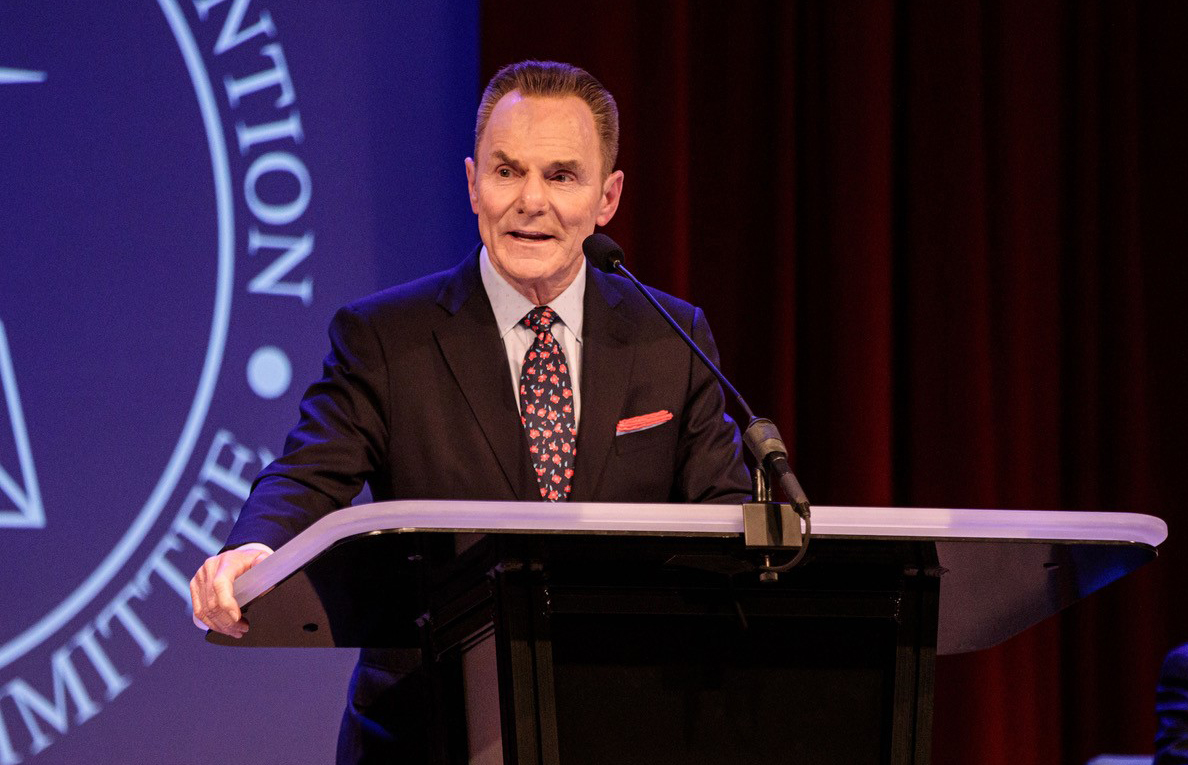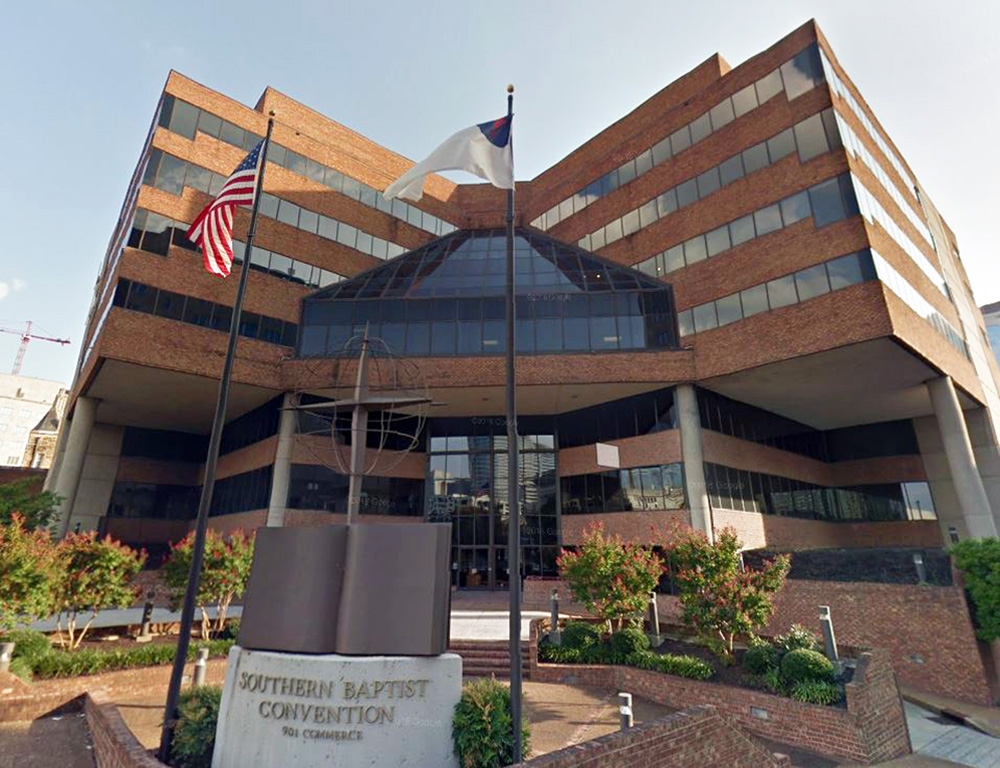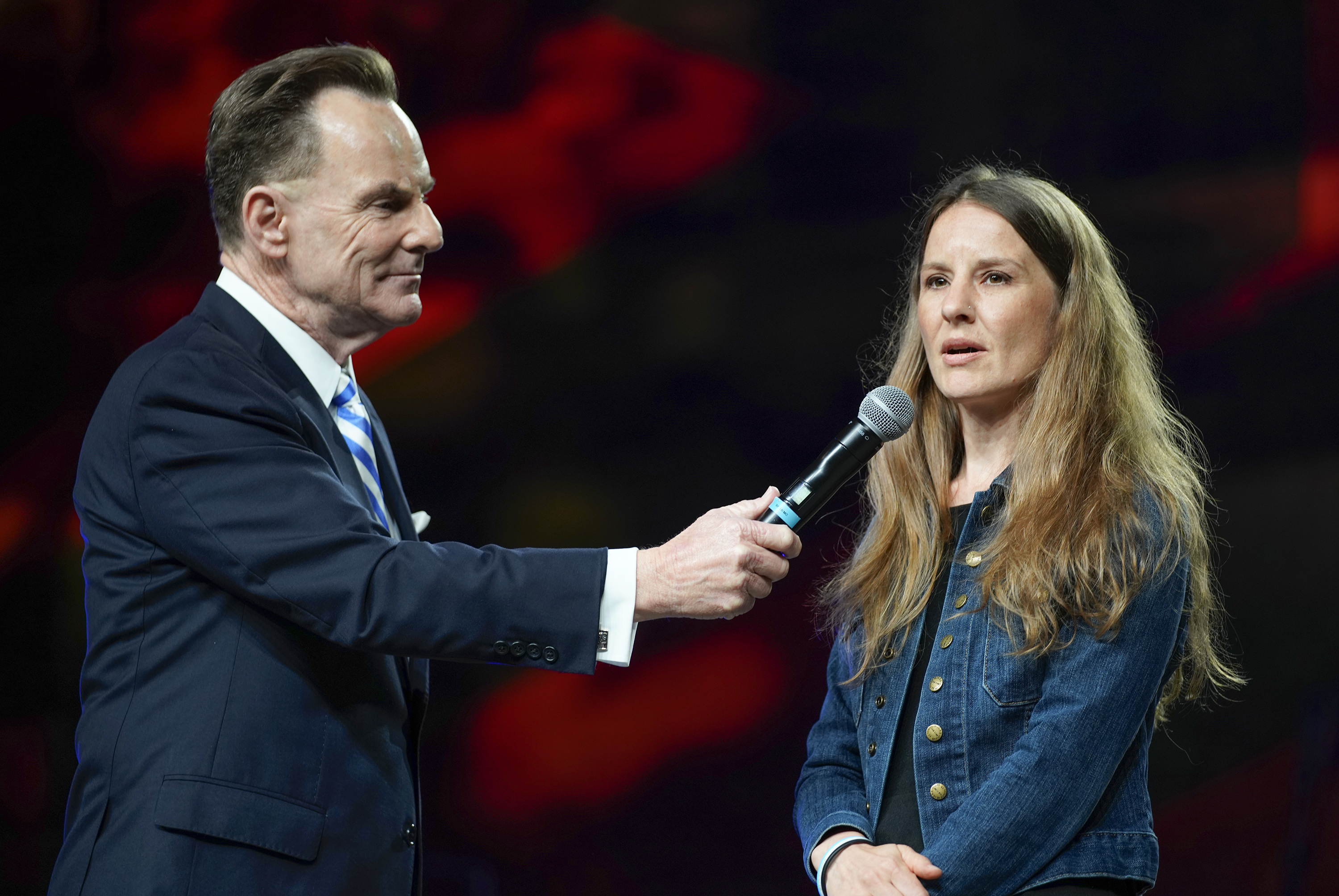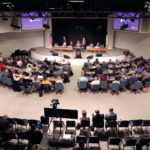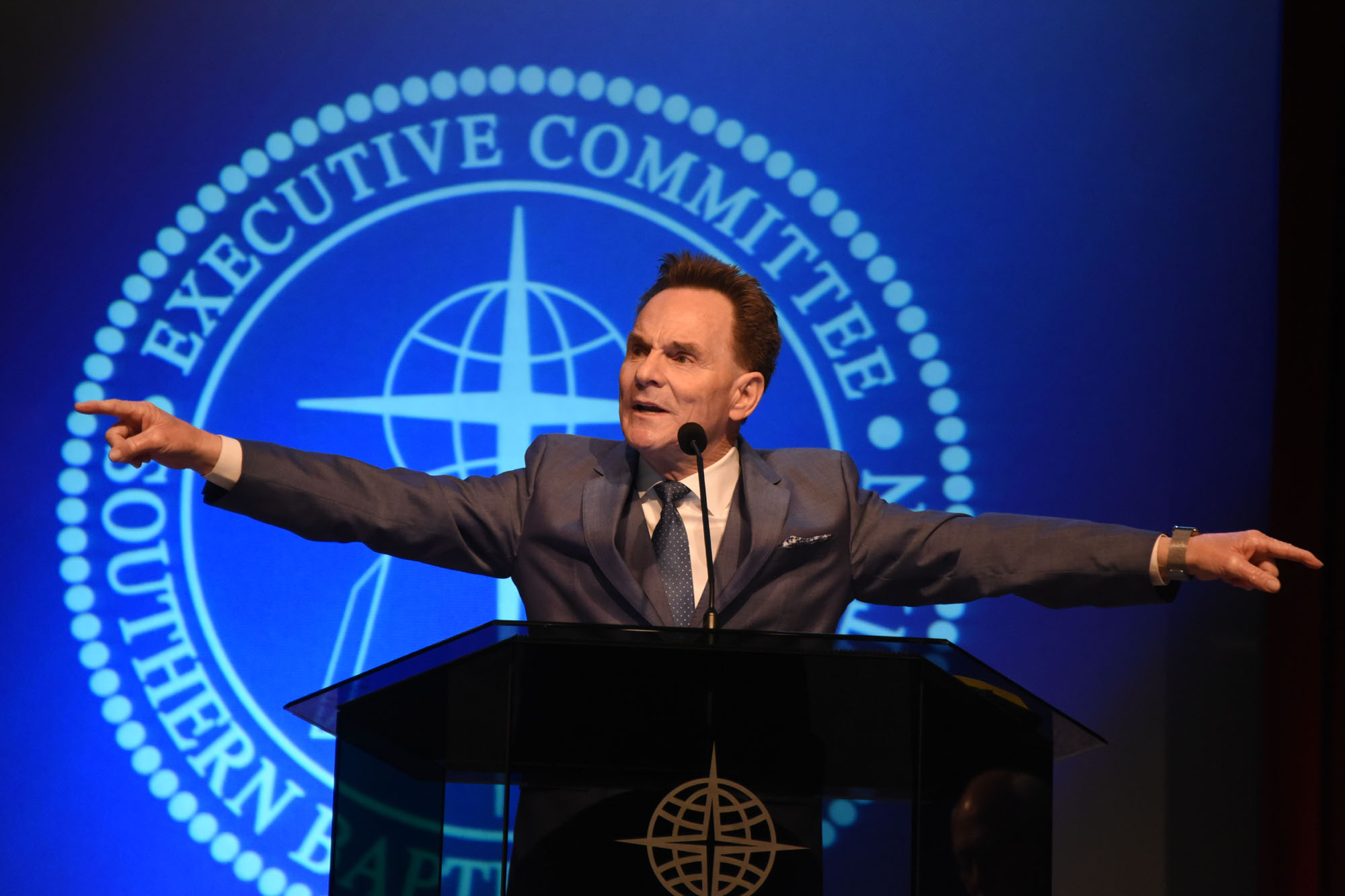
NASHVILLE (BP) — The supremacy of the Gospel will motivate J.D. Greear as he leads Southern Baptists to evangelize, plant churches and mobilize college students for the Kingdom, he told Southern Baptist executives Sept. 17 in Nashville.
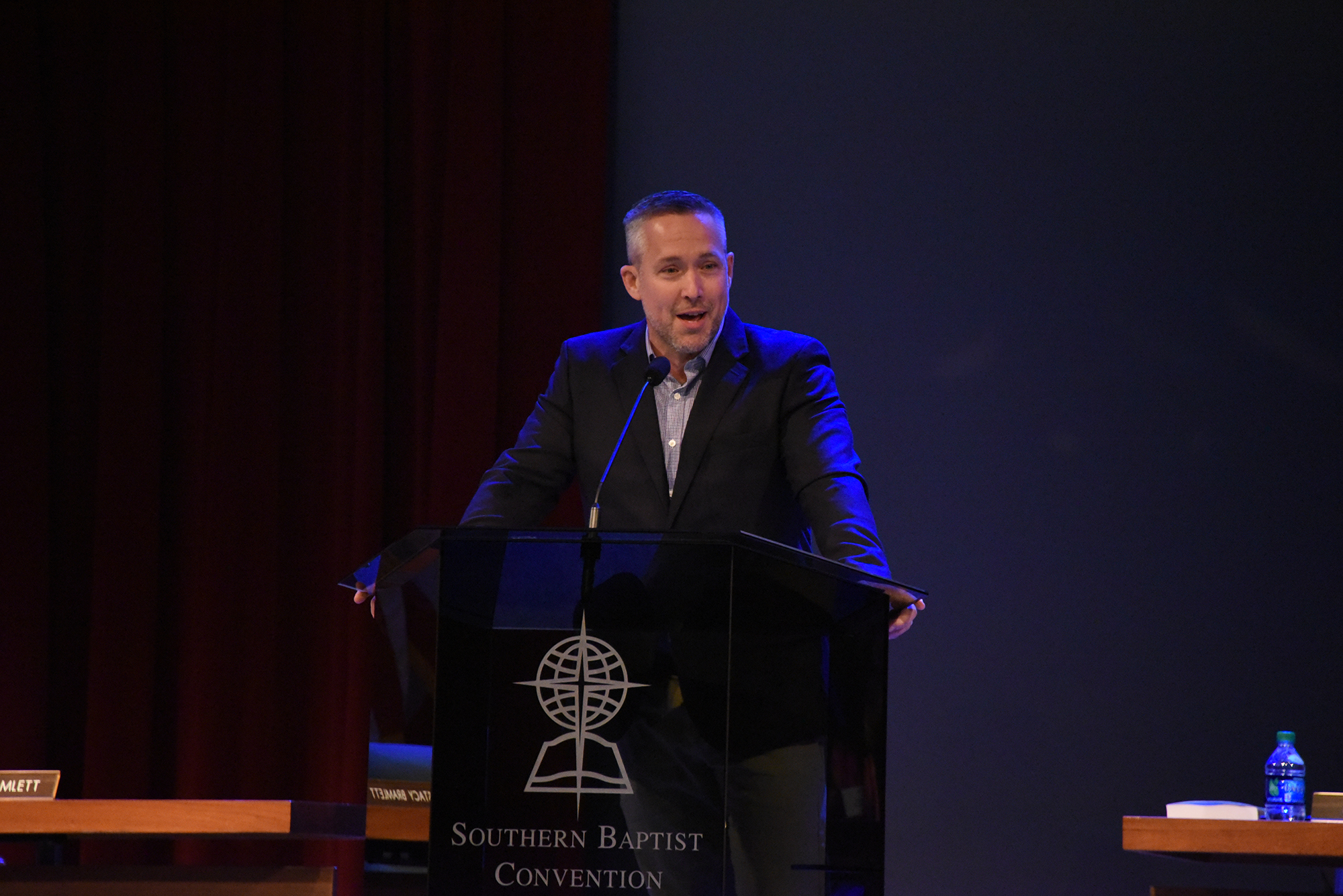 “It is the Gospel that is the source of our renewal, and it is the Gospel that should be our defining characteristic as a people,” Greear said in his first presidential address to the Southern Baptist Convention Executive Committee at its fall meeting. “(The Gospel) should be what people think about and talk about when they think and talk about us.”
“It is the Gospel that is the source of our renewal, and it is the Gospel that should be our defining characteristic as a people,” Greear said in his first presidential address to the Southern Baptist Convention Executive Committee at its fall meeting. “(The Gospel) should be what people think about and talk about when they think and talk about us.”
Empowering cultural diversity, engaging the next generation in cooperative missions and preventing sexual abuse are also among his goals, said Greear, pastor of The Summit Church, in Raleigh-Durham, N.C.
Contentious debates that go beyond unifying characteristics of the Gospel will not direct his work, he told the EC and guests gathered, including state leaders and executive staff.
“Our disagreement on finer points of theology should not tear apart our unity in the Gospel,” Greear said. “Calvinism is never an issue to me…. I can assure you that what is not biblical is sitting around bickering about finer points of theology when people are lost and going to hell.
“I agree with (former SBC president) Johnny Hunt. I do not know all there is to know about the particulars of Calvinism,” Greear quipped, “but what I do know is that the more I go and share Christ, the more people seem to keep getting elected.”
Greear stated his presidential theme as the “Gospel Above All,” and expressed a desire to reflect on the Gospel “again and again” during his term.
He presented one of his newest initiatives since his June election, the pledge to appoint a Sexual Abuse Advisory Study, as a Gospel issue rather than a reaction to current events and political whims.
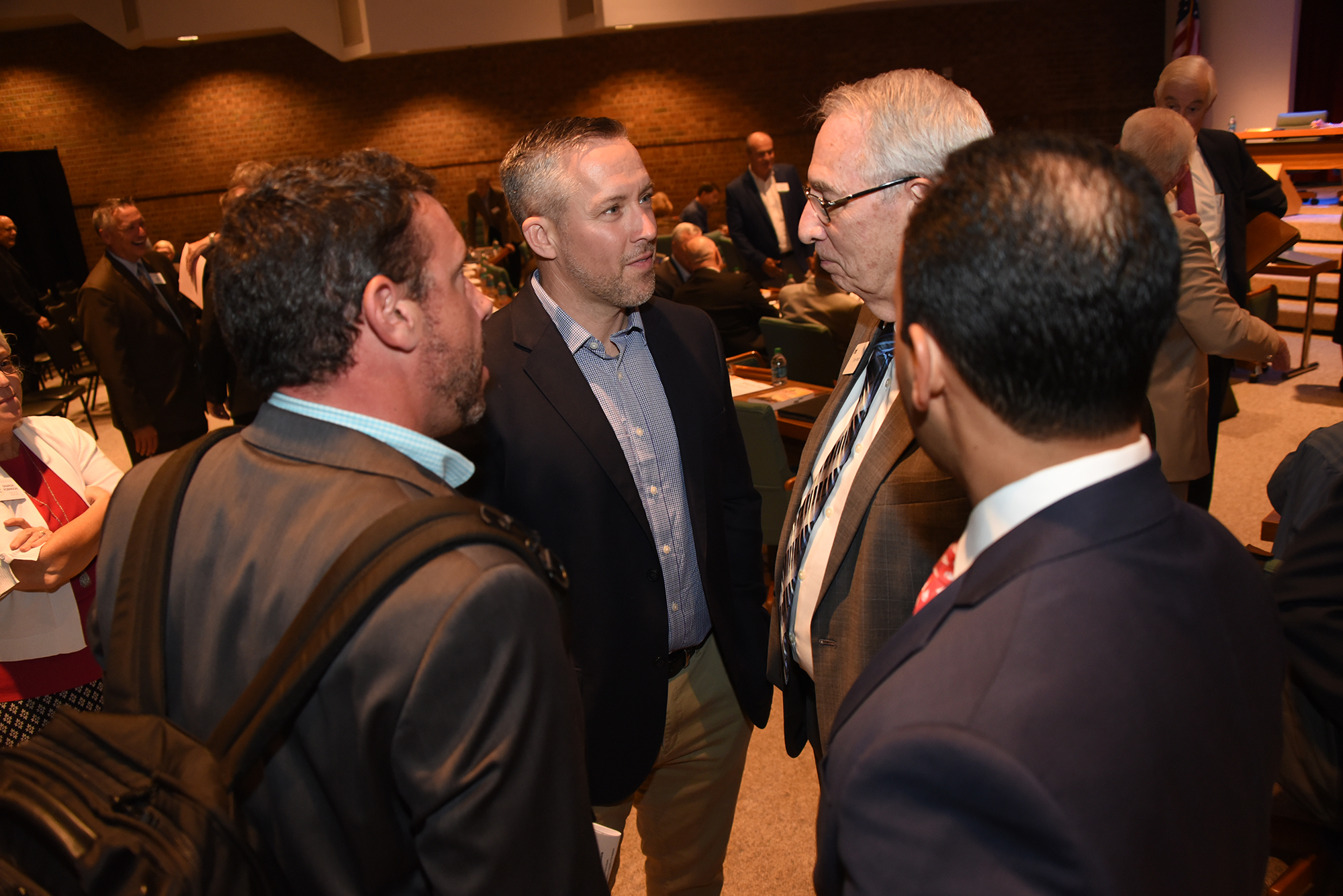 “Our churches really ought to be known as the safest places on the planet for the vulnerable. Isn’t that at least the heart, the most basic thing of our Gospel,” Greear noted, “when Jesus says come unto Me all ye who labor and are heavy laden and I will give you rest?
“Our churches really ought to be known as the safest places on the planet for the vulnerable. Isn’t that at least the heart, the most basic thing of our Gospel,” Greear noted, “when Jesus says come unto Me all ye who labor and are heavy laden and I will give you rest?
“Practically speaking, clarity on this issue is critical to evangelism in the next era,” Greear said. “If the next generation does not believe that our churches are a safe place,” he said, paraphrasing EC member Bill Prince, “then they won’t come to our churches nor to what we do…. If they don’t come to our churches, they will probably never learn to trust Jesus as their Savior.”
The study, which he is still forming, will have a rotating membership that keeps the group alive for years, he said, likely continuing past his presidency. Greear gave overviews of his agenda items.
Who Is Your One?
Greear will launch the “Who Is Your One?” personal evangelism initiative in January 2019, he said, encouraging churches to use their own style and personality in encouraging each church member to intentionally share the Gospel and build relationship with one person over the course of a year.
At The Summit Church, Greear said, Who Is Your One includes the church member standing in the baptismal with the person they brought to Christ when the new believer is baptized.
“A Home Depot approach” is how Greear terms his style of expressing shared goals and encouraging churches to respond through individual leadership in the power of the Gospel. “You can do it; we can help.”
Greear noted the worth and value of state conventions and associations. He noted those leaders are most aware of the individuality of churches and regions. And he has met with state convention executives whom he described as already doing many of the things he hopes to encourage.
“I’ve told them that they are the ones who most likely will be doing these things after I have finished serving as president,” Greear said. “They are also the ones who will lead out on these things on local levels. They are the ones who will figure out what these things need to look like in churches in their particular region.”
Church planting and sending
The Gospel Above All requires a renewed emphasis on sending missionaries and church planters, Greear said, referencing legendary Baptist missionary Adoniram Judson.
“He prayed that the day would come for the church in America,” Greer said, “that no church could stand to meet together on the weekend when at least one of their number was not representing them on the field.”
“That is something I want to be able to challenge churches to say, ‘Wherever you are on the church planting scale,” Greear said, “can you take the next step?’ And can we have our agencies help people begin to take the next step?”
Affirming the work of the North American Mission Board and the International Mission Board, he encouraged churches to send missionaries from their own congregations, in addition to supporting missions through the SBC’s Cooperative Program of shared financial giving.
College graduate mobilization
Churches should encourage college students to prioritize the Kingdom of God when choosing where to pursue their careers geographically, Greear said.
At The Summit Church, “we tell college students lots of factors should go into where you choose to pursue your career,” Greear said. “The Kingdom of God should be the largest of those factors.”
He encourages graduates to let at least the first two years of their careers be in locations where God is “doing something strategically.” Historically, Greear said, every great awakening has involved college students as motivators and leaders.
“Get a job someplace where we are trying to plant a church,” he tells students. “It has really caught on.”
Cultural diversity
Southern Baptists should live in such a way that others marvel at the unity the church displays beyond divisions, Greear said.
“This has got to be more than a stated desire for Southern Baptists,” he said. “The work of reconciliation is hard work. Anybody that tells you otherwise has never actually engaged in it. There are some things that you are going to have to be committed to that go beyond the tip of the hat.”
He referenced African American author and professor George Yancey and his book “Beyond Racial Gridlock: Embracing Mutual Responsibility” as a helpful resource.
Yancey uses the example of a spouse who has been abused, in contrast to the person who has committed the abuse.
“When the spouse who was the abuser genuinely repents, and if the abused wants to issue forgiveness, both sides have a role to play in the discussions about going forward,” said Greear, referencing Yancey. “There are certain things that the abused person can only do for themselves.
“But I will tell you the one who was in the role of the abuser ought to listen a lot more, and be committed to listening a lot more than the one who was in the role of the abused.”
The analogy means that for the majority culture, Greear said of himself and others, “we’ve got some hard work ahead of us and a lot of listening.
“We need this, and you know this,” Greer said. “We need the wisdom of our brothers and sisters, particularly of color, as we go forward in this” demographically changing nation.
For blog reports on this week’s SBC Executive Committee meeting, click here.

